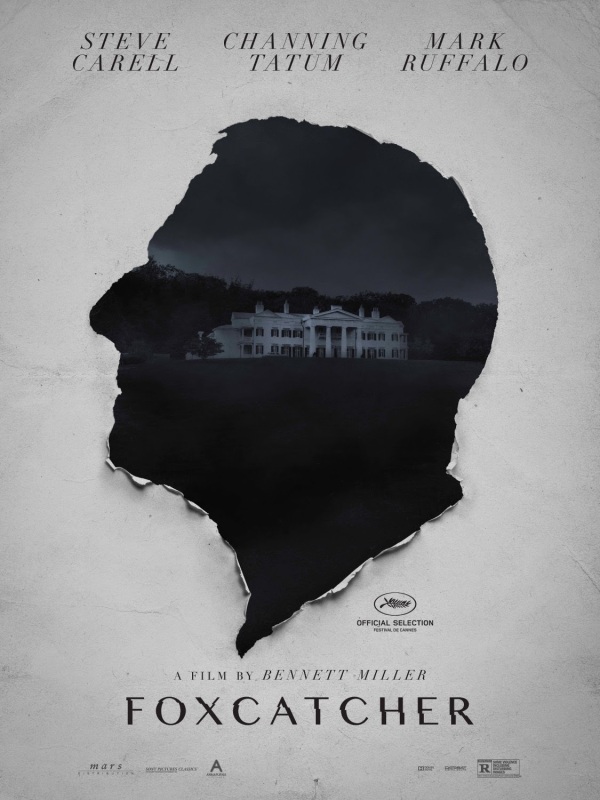![]() FRESH AIR: Dave Davies speaks with Foxcatcher director Bennett Miller (Capote, Moneyball)
FRESH AIR: Dave Davies speaks with Foxcatcher director Bennett Miller (Capote, Moneyball)
DAILY BEAST: Bennett Miller’s tragic, true-life saga Foxcatcher is about many things: Familial strife, American exceptionalism, the corrupting influence of money, and Steve Carell’s prosthetic schnoz. It will also introduce many viewers to one of cinema’s most unstable and chilling villains in John du Pont—an ornithologist, philanthropist, conchologist, philatelist, sports enthusiast, and murderer. The film centers on Mark Schultz (Channing Tatum). In the wake of his gold medal win at the 1984 Olympics, he’s depicted living in relative poverty, subsisting on a diet of ramen and accepting $20 for speaking engagements. He’s eager to escape from under the shadow of his older, more amiable brother, Dave (Mark Ruffalo), who also took gold in ’84. Desperate, Schultz falls under the wing of du Pont (Carell), a cocaine-snorting, gun-toting, psychopathic Svengali who provides him with state-of-the-art training facilities at Foxcatcher Farm in Newtown Square, Pennsylvania, and even offers to have Dave and his family live on the estate grounds so he can help coach little brother. On January 26, 1996, du Pont drove to his guesthouse, approached Dave while he was working on his car in the driveway under the watchful gaze of his wife, and shot him three times, killing him. In real life, John Eleuthère du Pont had creeped out Mark from the very beginning. “When I first met du Pont, I thought he was the biggest loser on Earth,” Mark recently told People. “His head was caked with dandruff. His teeth were caked with food. He had these little twig arms. It looked like he had swallowed a basketball… I knew I couldn’t be around this guy.” The du Pont family descended from Huguenot nobility in Burgundy, emigrating to the United States in 1800. There, they used their considerable means to establish E. I. du Pont de Nemours and Company in 1802, a war-profiteering gunpowder manufacturer that grew to become the largest producer of black gunpowder in the country. The family also believed that inbreeding was central to both preserving the family fortune and ensuring “purity of blood.” MORE
THE PSYCLONE RANGERS: Little Man With A Gun In His Hand

